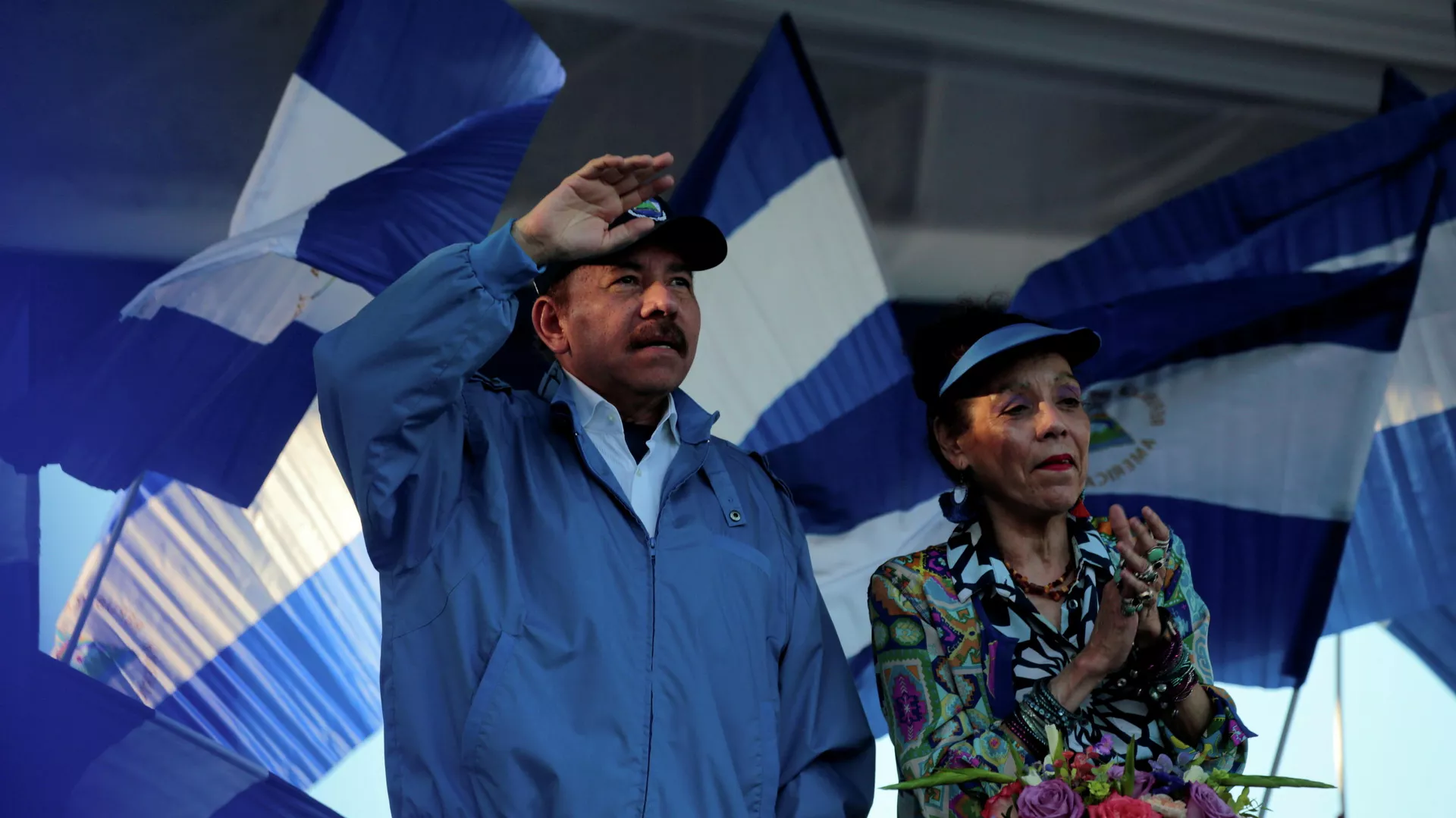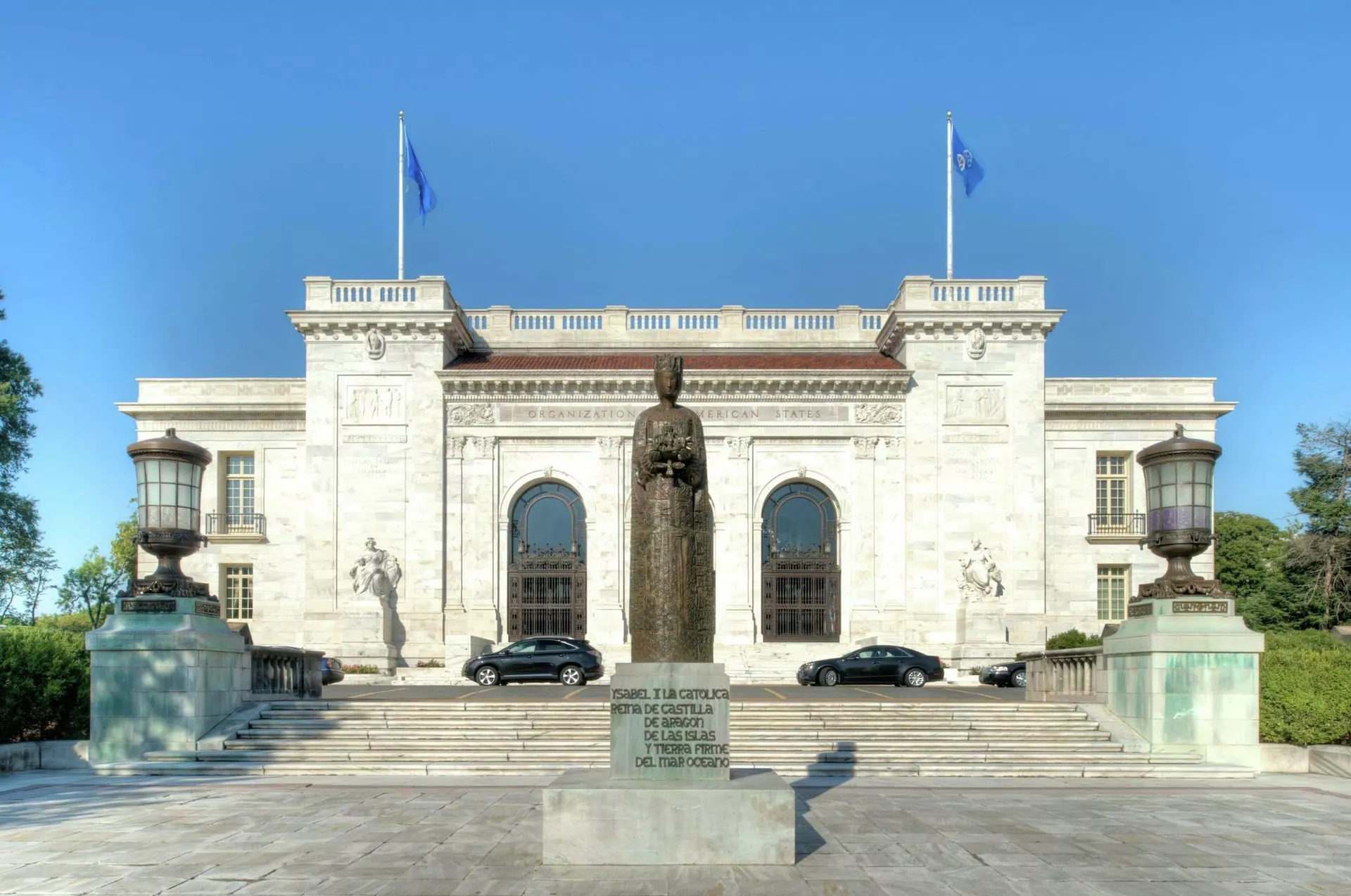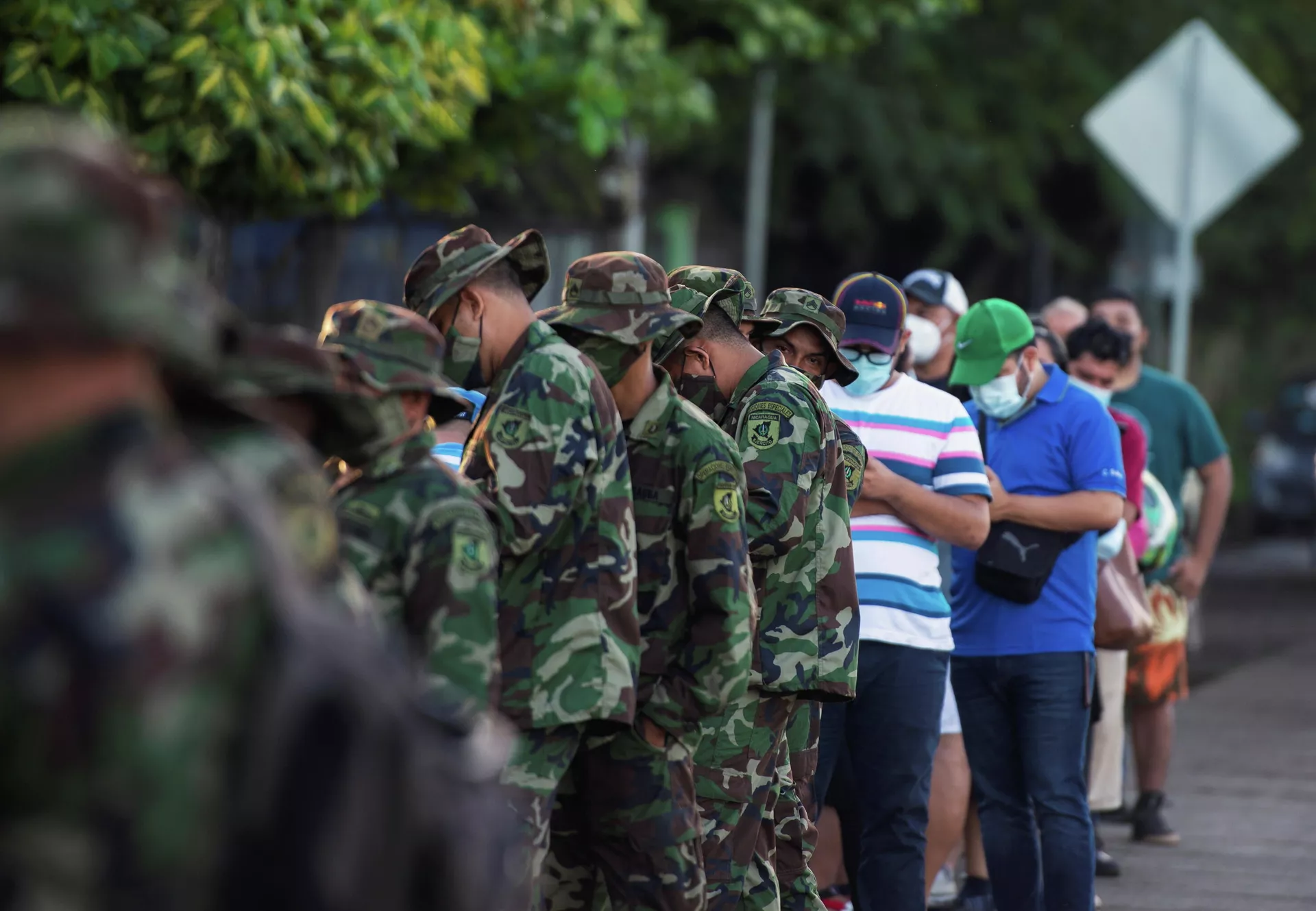‘Not a Colony of Any Power’: Nicaragua Withdraws From OAS After Group Calls Ortega ‘Autocrat’
00:56 GMT 20.11.2021 (Updated: 19:51 GMT 31.10.2022)

© REUTERS / Oswaldo Rivas
Subscribe
The Nicaraguan government on Friday denounced the charter of the Organization of American States (OAS), initiating the country’s withdrawal from the international group in response to its denunciation of Nicaraguan President Daniel Ortega’s reelection victory last week.
“The Organization of American States has been designed as a diplomatic political forum, born under the influence of the United States, as an instrument of interference and intervention and its actions against Nicaragua have shown that this organization, which operates permanently in Washington, has as its mission to facilitate the hegemony of the United States with its interventionism against the countries of Latin America and the Caribbean. Which is unacceptable for Nicaragua and which we reject and condemn,” reads a Friday letter sent by Nicaraguan Foreign Minister Denis Moncada to OAS Secretary General Luis Almagro.
“We do not view ourselves as a colony of any power, and we claim national dignity and decorum, in legitimate defense of our independence, sovereignty and self-determination, in the face of aggressive actions, violations of the UN Charter and international law by the Organization of American States, the United States of North America and of other colonialist and neocolonialist entities, which at this point in life believe that they have the power to subdue and humiliate our worthy people and government,” Moncada added.
“The dignified people and government of Nicaragua resign to be a part of this captive organization in Washington, instrumentalized in favor of North American interests, becoming an architect of interference and disagreement, to the detriment of the peoples of Latin America and the Caribbean.”
Moncada’s fiery letter follows several declarations by the OAS in recent weeks, including one claiming the November 7 “so-called election is nothing but a sham” and another, issued last Friday, denouncing “the would-be dynasty presided over by President [Daniel] Ortega and Vice President [Rosario] Murillo” and calling on the OAS Permanent Council to “take appropriate action.”

The Pan American Union Building, the headquarters for the Organization of American States (OAS), in Washington, DC.
However, Ortega’s decision actually flows from the Supreme Court and National Assembly, both of which pleaded for his government to denounce the OAS charter in response to breaches of the country’s sovereignty.
Nicaragua is the third country to leave the group. Cuba was removed by the group in a 1962 resolution that declared Marxism-Leninism to be “incompatible with the inter-American system.”
“The OAS was unmasked for what it is - Yankee Ministry of Colonies and a military bloc against the peoples of Latin America,” Cuban revolutionary leader Fidel Castro said after the decision.
In 2009, the body apologized and lifted the ban on Cuba’s membership, but Havana elected to remain out of the group.
Between 2009 and 2011, Honduras was also suspended by the OAS after democratically-elected President Manuel Zelaya was removed from office in a US-backed constitutional coup. It was readmitted when Zelaya was allowed to return to the country.
Venezuelan President Nicolas Maduro announced in 2017 the country’s intention to leave the OAS in two years’ time. In 2019, when the OAS followed the US’ lead and backed opposition politician Juan Guaido’s claim to be interim president, Guaido attempted to rescind Maduro’s order, and his nonexistent government maintains an envoy to the OAS.
Ortega, the candidate for the Sandinista National Liberation Front (FSLN), won 76% of the votes in the November 7 election, which despite claims by the OAS and Western press, included five other candidates contesting Ortega’s reelection from across the political spectrum. He has been president since winning the 2006 elections and has been reelected three times, with the most recent victory only being slightly higher than the previous one in 2016, when he won 72.44% of the vote.

Civilians and military personnel queue to enter a school used as a polling station to cast their vote during the country's presidential election in Managua, Nicaragua November 7, 2021
© REUTERS / STRINGER
In the months prior to the election, several dozen opposition figures were arrested who played key roles in the deadly 2018 riots that were heavily supported by US-backed agencies, including the National Endowment for Democracy and the US Agency for International Aid and Development. In the wake of the November 7 election, Washington announced it would increase its support for such anti-FSLN groups.
The US Congress also passed the Reinforcing Nicaragua’s Adherence to Conditions for Electoral Reform (RENACER) Act in the days before the election, which created a framework for imposing new sanctions on members of Ortega's administration, including police and military officials, as well as his family. Other targets include officials at Nicaragua’s central bank, members of the Supreme Electoral Council, and FSLN members and their family members, as well.
The sanctions closely mirror those imposed on Venezuela following former US President Barack Obama’s 2015 labeling of the South American nation as an “unusual and extraordinary threat to the national security and foreign policy of the United States.” While appearing limited in form, their impact was extensive, as investment or even trade with Venezuela became a risky maneuver, and overcompliance in enforcing the sanctions reigned.
The FSLN previously ruled Nicaragua between 1979 and 1990, following the overthrow of the US-backed Somoza family dictatorship. While their extensive social programs were widely popular, US-backed Contra guerrillas waged a terrorist campaign against the Nicaraguan government and symbols of Sandinista rule, such as schools and hospitals in rural areas, and by 1990, the Nicaraguan people chose to vote Ortega out of office in a bid to end the US’ economic and political war against the country.


